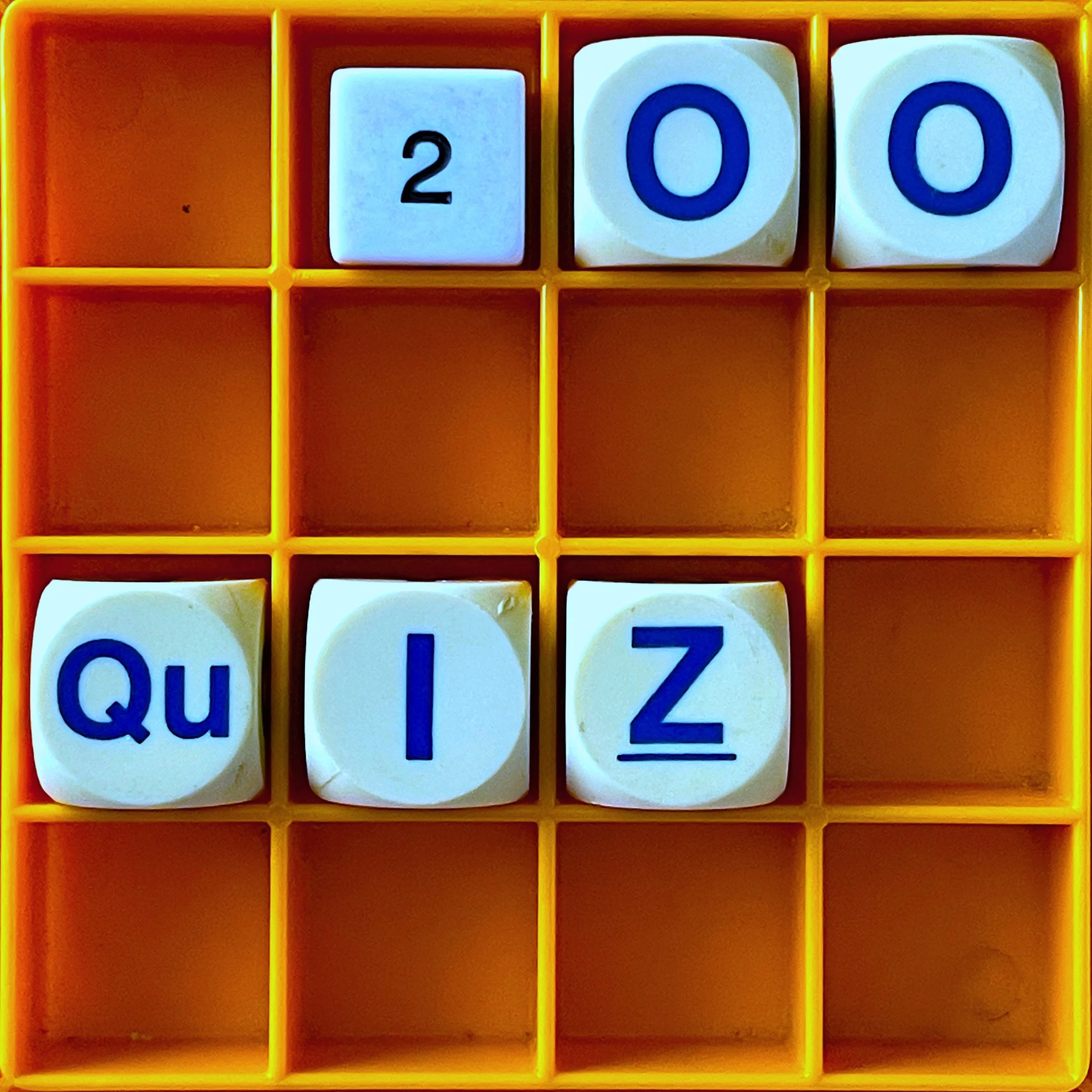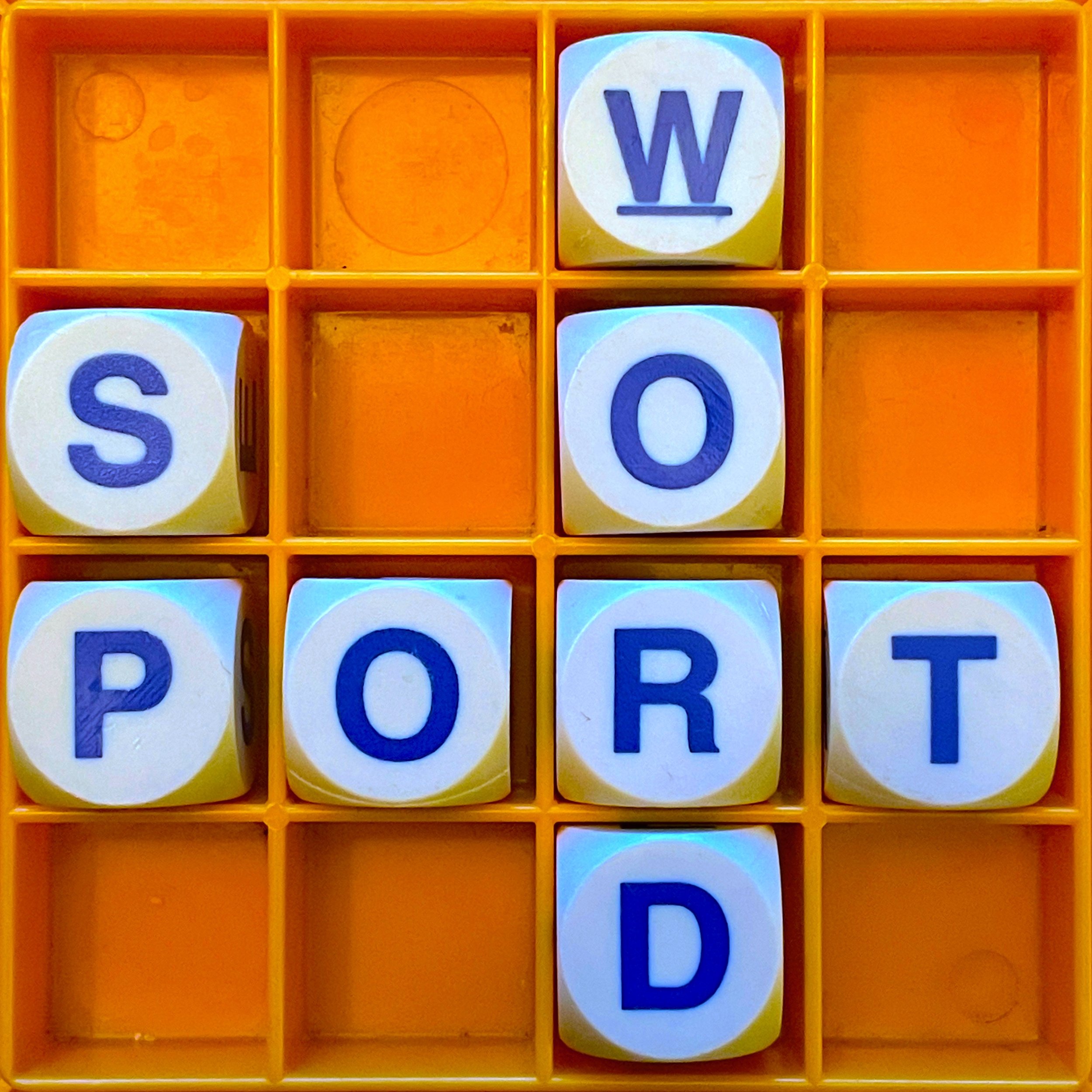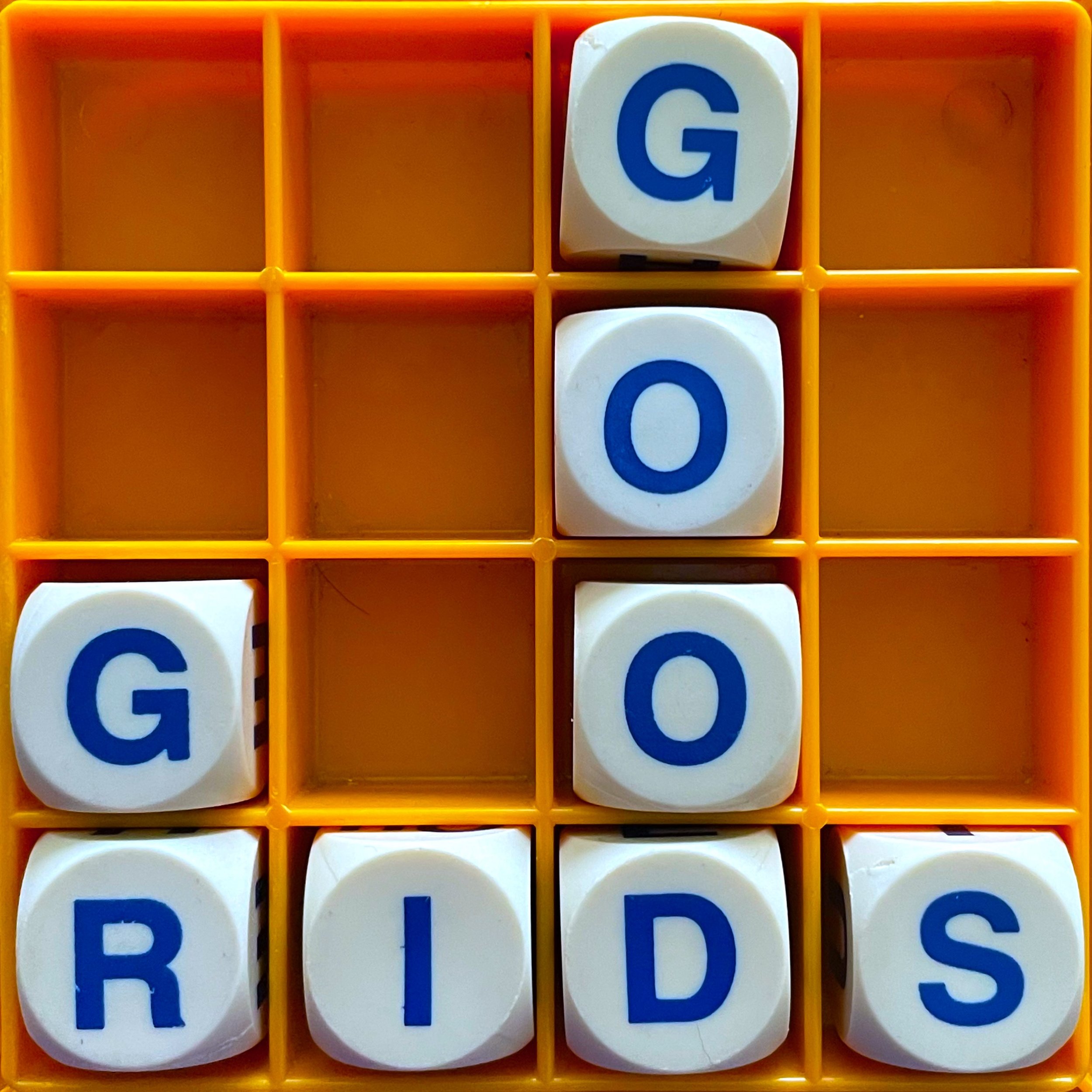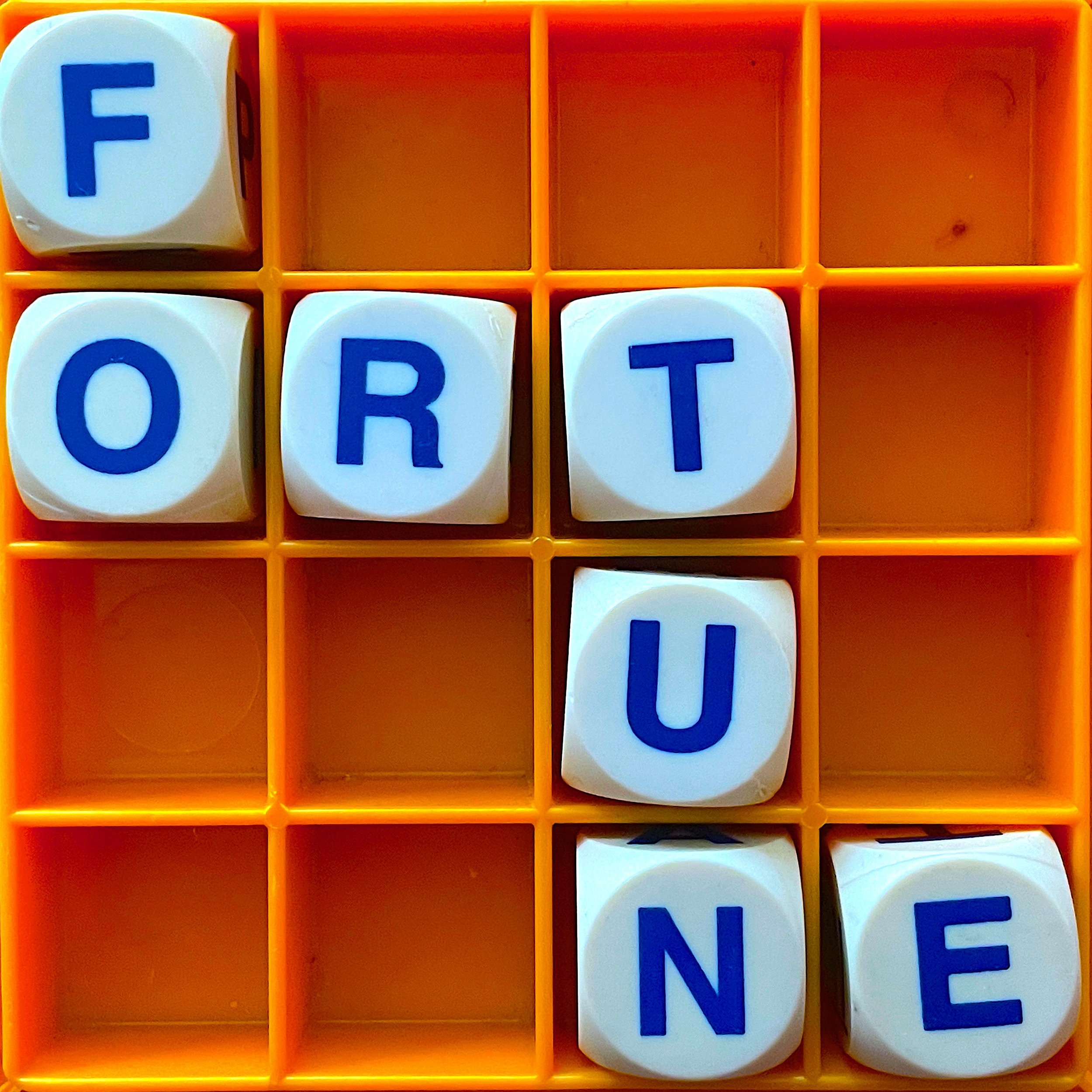Four Letter Word season continues, and this time we do not require explicit tags or content warnings, because our four-letter word is QUIZ! Or rather, today we have a quiz about four letter words.
Read moreAllusionist 209. Serving C-bomb transcript
Things have changed for a word that despite being around in written text for 900+ years, didn’t even get listed in the Oxford English Dictionary until 1972.
NICOLE HOLLIDAY: I never say this word.
HZ: No, I feel bad to force you.
NICOLE HOLLIDAY: No, it's funny. Well, I'll say it on podcast, this is professional environment; but in my normal daily life, I can't imagine that I would personally say it. And this might just be like, I'm kind of a prude and I was raised kind of religious, but it does sort of seem like beyond the pale for me personally. I wonder if were 20 if I wouldn’t feel that way, but I spent so much of my life like judiciously avoiding very strong taboos. And this one, just my gut reaction is that it overwhelms. So when you asked me to do this, I was like, “Oh, no! I have to say that word!”
HZ: I'm sorry. We could probably skirt around it and then people can spend the whole episode trying to guess which word we're talking about.
Read moreAllusionist 208. Four Letter Words: Ffff
If you’re thinking, “How the fuck can you write a whole 500-page dictionary just about the word ‘fuck’?” consider, say, the many meanings of ‘ass fuck’, noun and verb - and that’s before you even add similar terms like ‘bumfuck’ and ‘buttfuck’. And there are so many less usual terms, like ‘fucksome’ or ‘fuckstrated’ or ‘fuckist’ or ‘fucktious’.
Read moreAllusionist 207. Randomly Selected Words from the Dictionary
Today’s episode is in the Tranquillusionist style, to give your brain a break while I say words that are not too consequential over a soothing backing track. And this time, the words are all the randomly selected words from the dictionary from every episode of the show, in reverse chronological order.
Read moreAllusionist 203. Flyting transcript
ISHBEL McFARLANE: “You crap so much that you sunk a ship you were on.”
HZ: I’m gonna use that.
Allusionist 201. Singlish transcript
BIBEK GURUNG: You grow up with the sense that if your first language, or one of your first languages, Singlish, actually a bad version of an already existing language, you kind of get this sense that “I'm just bad at language,” which is… language is a fundamental human skill. It's what separates us from the lemurs or whatever. And to just have this sense that you're bad at this very fundamental skill, I think, really does a number to your self esteem and your abilities to communicate in general. I still have a lot of - I don't know how to phrase it, maybe like cultural cringe - around Singlish. And when I meet someone from Singapore, we do sort of lapse into Singlish and communicate in that way, except if I'm with American friends and then I just feel so self conscious and I'm not able to do it. As a student of linguistics and someone who just knows about the sociolinguistic dynamics, I still find it really hard to shake.
Read moreTranquillusionist: Ex-Constellations transcript
Let’s hear it for some of the constellations that we used to have but are now ex-constellations.
Read moreAllusionist 200. 200th episode celebratory quiz! transcript
Here it is, the 200th episode of the Allusionist! To celebrate, here is a playalong quiz where the questions have been set by you, the smart listeners, and if you want to play as you listen, you can keep track of your scores via the score sheet at theallusionist.org/200, if you don’t have to hand the back of an envelope and a pencil you stole from IKEA.
Read moreAllusionist 199. 199 ideas that I hadn't made into podcasts yet - transcript
This is the 199th episode of the show, and since before this show began, so for nearly a decade, I have been jotting down ideas in two documents - one for short ideas, one for long ideas. There are always more ideas than I have time and ability to make podcasts about, so now the documents are altogether 66 pages long and growing every day. So in this episode, you’re going to hear 199 ideas that I wanted to put into the podcast and haven’t yet.
Read moreAllusionist 198. Queer Arab Glossary
HZ: So how do you go about building a glossary when you have to do that yourself from scratch?
MARWAN KAABOUR: Yes, it's a good question. Like, why would a graphic designer with a steady job decide to open this can of worms?
Allusionist 197. Word Play part 7: Word Sport
Unleash the bees!
Read moreAllusionist 196. Word Play part 6: Beeing
DEV SHAH: Spelling is about roots, language. I genuinely loved getting a word I didn't know and having all this information - it was like a detective case: you have the language of origin, the definition, alternate pronunciations, roots; it's like witnesses and having details to a crime scene, forensics. And, you know, it was just me piecing out together, doing what I love, in front of millions of people, shining on a stage, cameras, and still getting a lot from it.
HZ: And you got to do all that detective work in ninety seconds.
DEV SHAH: Exactly.
Allusionist 194 Word Play part 4: Good Grids
ERIK AGARD: What I see a lot in crosswords is, I think, not unique to crosswords where historically they've been for a very specific cross-section of an audience. They're written with certain people in mind, and certain other people not in mind. And I think we're starting to see the tip of the iceberg of some changes that expands the range of who they're for.
Read moreAllusionist 192 Word Play part 2 transcript
HZ: People assume to my face that a podcast about language won't be fun, and they're like, “Why would you do something that sounds so boring and dry and like a punishment?” What kind of reactions do you get when people learn that you make games about language?
KATHRYN HYMES: It's so interesting - for some people there's a similar reaction, but for a set of people, it's like you have given them the thing that they have most wanted in the world and maybe didn't realise or articulate or hope that such a thing could be made. And it's somewhat shocking that there's enough of those people and that the internet is able to connect it, you know, connect us to them that we end up finding each other.
Allusionist 189 Mouthful of Fortune transcript
HZ: What is this principle that is at play here, with foods being lucky because their names sound like other things?
MIRANDA BROWN: The main principle is that there's this very ancient Chinese belief that dates, I think, to the first or second century AD during the Han dynasty, that things that share similar sort of qualities - it could be appearance, it could be sort of textures, and names - share in common some sort of cosmic resonance. So the basic principle is that if you sort of you can activate those resonances by, let's say, you want a lot of money, then you might wear clothes that have gold, or you could eat foods that sound like a lot of money or ‘get rich’, and that would in some ways attract that desired end into your life. And this is especially important during liminal times of the year or when seasons are changing or when you're celebrating a holiday. The future is being decided, or it's somewhat inchoate. So this is your way of making these desired outcomes realized.
HZ: Because I was wondering: if the foods are lucky, then why can't you eat them throughout the year? But is that just gaming the system in a way it should not be gamed?
MIRANDA BROWN: I think there's something special about holidays, which, are transitional periods, that I think make that kind of eating especially effective. And, I also have to remember that during Lunar New Year, it's the beginning of the year. If you're going to set your goals for the year, the beginning is a good time to start.
Read more














